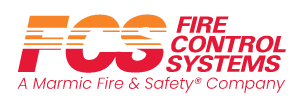Backflow preventers are necessary. When you turn on the faucet, you expect water that is safe and clean to drink. Professionally designed plumbing and sewage systems provide our businesses and homes with fresh water for drinking and bathing. We depend on pressure to move water through our plumbing pipes. It is this reliance on pressure that opens us up to the dangers of backflow.
What is Backflow?
Water is designed to flow through one set of pipes as freshwater and leaves via another set of pipes as wastewater. Backflow is a term used to describe an undesirable flow of water in the reverse direction. The backflow of water carries contaminants back to the freshwater supply system, making the water unsafe to drink.
What Causes Backflow?
Backflow is caused by changes in pressure. Your plumbing system is only designed for water to move in one direction, but if there’s a sudden change in pressure inside the pipes, it can cause the water to flow the wrong way.
What is Backflow Prevention?
Backflow preventers are devices installed at cross-connections in your plumbing system to ensure that backflow-causing pressure changes don’t lead to a contamination of your drinking water. Buildings and homes are required to have backflow prevention devices to protect against this kind of water contamination.
How Do Backflow Preventers Work?
There are two main types of backflow systems: air gap (AG) and reduced pressure valve assembly (RPZ).
- Air gap backflow systems have an air gap between the water supply system and the receiving vessel. The air gap prevents non-potable water from flowing back to the clean water supply system.
- RPZ backflow systems have valves that only open when water is flowing forward.
Why Is Backflow Prevention So Important?
If a backflow occurs, it can pose a significant health and safety risk. This is because dirty wastewater from bathing and toileting can contaminate your clean drinking water, causing any number of illnesses—some of which are severe enough to kill you!
It is important to have your backflow devices inspected annually. Call Fire Control Systems if you have any questions about your backflow preventer, regulations or want to schedule your annual backflow inspection.







